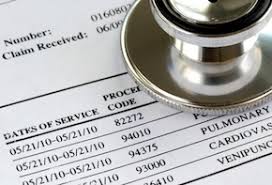
FACTOR THIS: EXPOSING PREDATORY PRACTICES OF MEDICAL FACTORING COMPANIES AND RELATED INJURY LITIGATION
By Julie Lambeth, JD, PartnerSource Executive Vice President
We have all seen the attorney television advertisements touting large awards for their clients. They claim to fight the insurance companies to obtain the compensation their clients deserve for injuries sustained in an accident. This begs the question of how personal injury claims are being valued.
The Medical Factoring Pitch. On the surface, medical factoring companies appear to be an attractive option for injured workers because they promise access to a network of medical providers who will better address the injured workers’ needs. What they do not say is that unnecessary medical procedures may be performed and that many factoring companies, attorneys, and participating medical providers are playing a shell game with the medical billing to secure huge profits for themselves. PartnerSource Attorney Team Leaders are very familiar with how this process works and can assist employers and defense counsel in minimizing the impact of factoring companies and exposing their unscrupulous practices that frequently harm both injured workers and employers.
Calculating the Damage. A personal injury award involves both economic and non-economic damages. Economic damages are objective, verifiable losses, like past and future medical expenses and wages lost while unable to work due to an accident. Non-economic damages are the subjective, non-monetary losses, like pain and suffering. Typically, a court or arbitrator uses a multiple of the economic losses to calculate the non-economic damages. So understandably, the higher the medical expenses the higher the overall potential award of both economic and non-economic damages.
For example, assume the injured worker has incurred $50,000 in medical bills. A plaintiff attorney will apply a multiplier of anywhere between 1.5 and 5 to determine and make a demand for non-economic damages. Now, assume the injury is considered moderately severe, the attorney believes they have strong facts on liability, and the decision is made to apply a multiplier of 3. In this case, the non-economic damages would equal $150,000. So, the plaintiff attorney would make a demand for a total of $200,000 in economic and non-economic damages.
Most Texas injury benefit plans provide that medical expenses incurred with approved (commonly, the best available) medical providers will be paid at usual and customary charges (the prevailing and customary charge in the locality for a like treatment, service, or supply). However, when the employee’s medical care is directed by an attorney, medical care is rarely delivered by the most qualified providers, and the cost of medical procedures tend to increase significantly over usual and customary charges. And then, medical factoring companies enter the scene to drive these costs even higher.
What is a Medical Factoring Company? Plaintiff attorneys commonly provide a “letter of protection” to medical providers to secure medical treatment for injured employees, without any outlay of money by the attorney or the employee. Under a “letter of protection”, medical providers receives payment for their services at the same time the plaintiff attorney gets paid – upon resolution of the claim through a settlement agreement or when a jury or an arbitrator issues an award. The plaintiff attorney often then pays off the medical providers with a further discount. In contrast, medical factoring companies step in earlier to direct medical care, then actually purchase the accounts receivable from the medical providers, eliminating the lengthy delay for medical providers to receive payments for their services.
How Does it Work? The process begins with directing the claimant to a medical provider in the factoring company’s network. The medical provider renders services and then issues a highly inflated bill. The factoring company will then purchase the account receivable at a discounted rate (more in line with usual and customary charges). By purchasing the account, the factoring company steps into the shoes of the medical provider and seeks to recover the full amount of the medical charges originally billed, thereby significantly increasing the economic and non-economic damages upon which the value of the claim is based. This arrangement is attractive to both unsuspecting injured employees and their attorneys because of a non-recourse policy that provides the factoring company will take a loss in the event the attorney fails to recover full damages in court or arbitration.
Challenging Inflated Medical Expenses. Hiring a medical billing expert will be necessary to contest past medical expenses claimed by the plaintiff attorney. This is accomplished by filing a controverting affidavit prepared by the expert. This is an extremely important measure, as the failure to file a counter-affidavit may cause any evidence refuting the inflated charges to be excluded. It is also important that the billing expert be more than a physician or a custodian of records. The expert will need to demonstrate his/her qualifications to testify to the reasonable and necessary expenses for the treatment upon which expenses are being sought by the plaintiff attorney.
In a recent case, a factoring company’s network orthopedic surgeon charged the incredible sum of $67,000 for a lumbar fusion and sold the account receivable to the factoring company for $13,000. The mean cost of this procedure is $30,000 for patients not in litigation. The plaintiff attorney in this case then submitted a claim for past medical expenses of $67,000 – far beyond what the medical provider had already been paid – plus a multiple of that for alleged non-economic damage.
Needless to say, when a factoring company becomes the driver of the medical care received by an injured employee, the focus of the care shifts from serving the best interests of the injured employee to increasing the bottom line of the factoring company, the plaintiff attorney, and the medical providers. Defense attorneys must continue to be aggressive in attacking the practices of these unprincipled attorneys, medical providers, and factoring companies that prey on unsuspecting injured employees and employers.
Contact your PartnerSource Team Leader with any questions you may have regarding factoring companies and their use in personal injury litigation.
